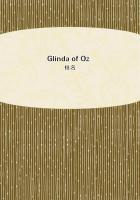THE Constable of Zenda and James, Mr. Rassendyll's servant, sat at breakfast in the hunting-lodge. They were in the small room which was ordinarily used as the bedroom of the gentleman in attendance on the king: they chose it now because it commanded a view of the approach. The door of the house was securely fastened; they were prepared to refuse admission; in case refusal was impossible, the preparations for concealing the king's body and that of his huntsman Herbert were complete. Inquirers would be told that the king had ridden out with his huntsman at daybreak, promising to return in the evening but not stating where he was going; Sapt was under orders to await his return, and James was expecting instructions from his master the Count of Tarlenheim. Thus armed against discovery, they looked for news from me which should determine their future action.
Meanwhile there was an interval of enforced idleness. Sapt, his meal finished, puffed away at his great pipe; James, after much pressure, had consented to light a small black clay, and sat at his ease with his legs stretched before him. His brows were knit, and a curious half-smile played about his mouth.
"What may you be thinking about, friend James?" asked the constable between two puffs. He had taken a fancy to the alert, ready little fellow.
James smoked for a moment, and then took his pipe from his mouth.
"I was thinking, sir, that since the king is dead--"
He paused.
"The king is no doubt dead, poor fellow," said Sapt, nodding.
"That since he's certainly dead, and since my master, Mr.
Rassendyll, is alive--"
"So far as we know, James," Sapt reminded him.
"Why, yes, sir, so far as we know. Since, then, Mr. Rassendyll is alive and the king is dead, I was thinking that it was a great pity, sir, that my master can't take his place and be king."
James looked across at the constable with an air of a man who offers a respectful suggestion.
"A remarkable thought, James," observed the constable with a grin.
"You don't agree with me, sir?, asked James deprecatingly.
"I don't say that it isn't a pity, for Rudolf makes a good king.
But you see it's impossible, isn't it?"
James nursed his knee between his hands, and his pipe, which he had replaced, stuck out of one corner of his mouth.
"When you say impossible, sir," he remarked deferentially, "I
venture to differ from you."
"You do? Come, we're at leisure. Let's hear how it would be possible."
"My master is in Strelsau, sir," began James.
"Well, most likely."
"I'm sure of it, sir. If he's been there, he will be taken for the king."
"That has happened before, and no doubt may happen again, unless--"
"Why, of course, sir, unless the king's body should be discovered."
"That's what I was about to say, James."
James kept silence for a few minutes. Then he observed, "It will be very awkward to explain how the king was killed."
"The story will need good telling," admitted Sapt.
"And it will be difficult to make it appear that the king was killed in Strelsau; yet if my master should chance to be killed in Strelsau--"
"Heaven forbid, James! On all grounds, Heaven forbid!"
"Even if my master is not killed, it will be difficult for us to get the king killed at the right time, and by means that will seem plausible."
Sapt seemed to fall into the humor of the speculation. "That's all very true. But if Mr. Rassendyll is to be king, it will be both awkward and difficult to dispose of the king's body and of this poor fellow Herbert," said he, sucking at his pipe.
Again James paused for a little while before he remarked: "I am, of course, sir, only discussing the matter by way of passing the time. It would probably be wrong to carry any such plan into effect."
"It might be, but let us discuss it--to pass the time," said Sapt; and he leant forward, looking into the servant's quiet, shrewd face.
"Well, then, sir, since it amuses you, let us say that the king came to the lodge last night, and was joined there by his friend Mr. Rassendyll."
"And did I come too?"
"You, sir, came also, in attendance on the king."
"Well, and you, James? You came. How came you?"
"Why, sir, by the Count of Tarlenheim's orders, to wait on Mr.
Rassendyll, the king's friend. Now, the king, sir.. This is my story, you know, sir, only my story."
"Your story interests me. Go on with it."
"The king went out very early this morning, sir."
"That would be on private business?"
"So we should have understood. But Mr. Rassendyll, Herbert, and ourselves remained here."
"Had the Count of Hentzau been?"
"Not to our knowledge, sir. But we were all tired and slept very soundly."
"Now did we?" said the constable, with a grim smile.
"In fact, sir, we were all overcome with fatigue--Mr. Rassendyll like the rest--and full morning found us still in our beds. There we should be to this moment, sir, had we not been suddenly aroused in a startling and fearful manner."
"You should write story books, James. Now what was this fearful manner in which we were aroused?"
James laid down his pipe, and, resting his hands on his knees, continued his story.
"This lodge, sir, this wooden lodge--for the lodge is all of wood, sir, without and within."
"This lodge is undoubtedly of wood, James, and, as you say, both inside and out."
"And since it is, sir, it would be mighty careless to leave a candle burning where the oil and firewood are stored."
"Most criminal!"
"But hard words don't hurt dead men; and you see, sir, poor Herbert is dead."
"It is true. He wouldn't feel aggrieved."
"But we, sir, you and I, awaking--"
"Aren't the others to awake, James?"
"Indeed, sir, I should pray that they had never awaked. For you and I, waking first, would find the lodge a mass of flames. We should have to run for our lives."
"What! Should we make no effort to rouse the others?"
"Indeed, sir, we should do all that men could do; we should even risk death by suffocation."
"But we should fail, in spite of our heroism, should we?"















